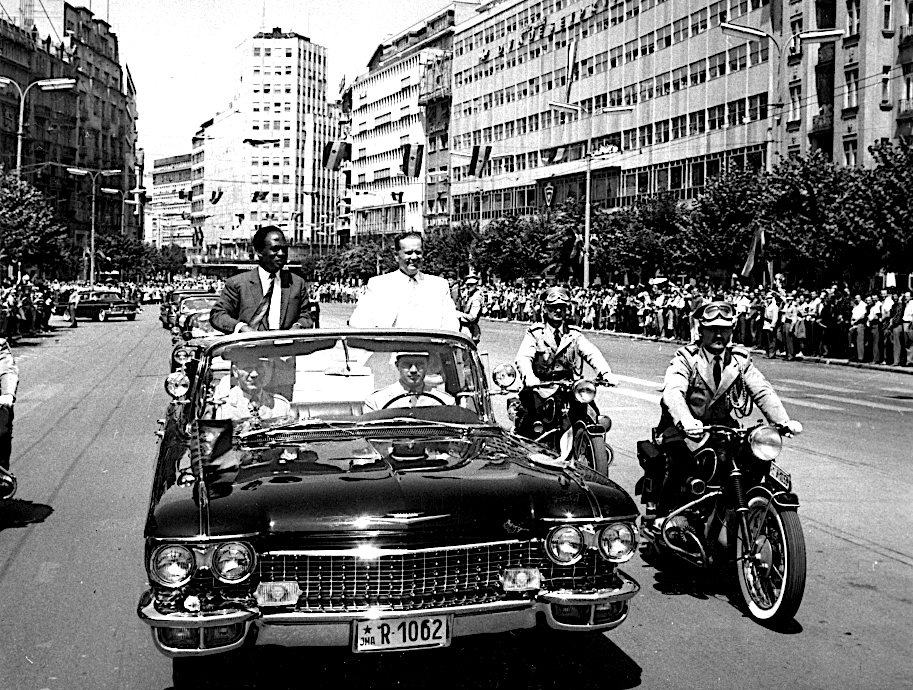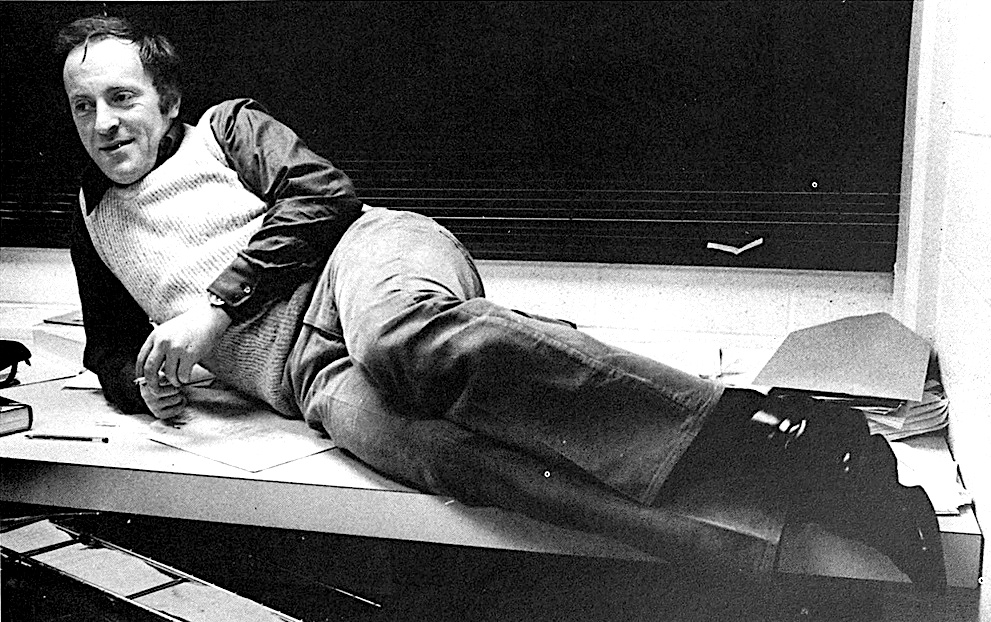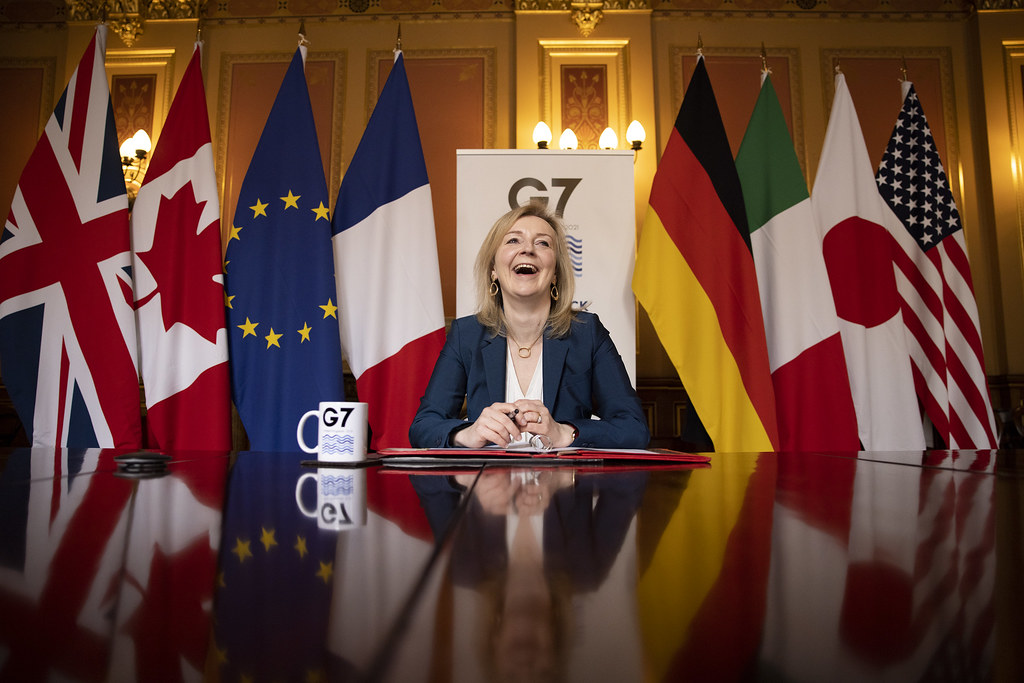By Patrick LAWRENCE
Russian President Vladimir Putin’s Aug. 16 speech to foreign dignitaries at the Moscow Conference on International Security, an annual affair that Russia has hosted for the past decade, articulates a new idea of our world, a veritable Weltanschauung, of great consequence. Putin said:
“The situation in the world is changing dynamically and the outlines of a multipolar world order are taking shape. An increasing number of countries and peoples are choosing a path of free and sovereign development based on their own distinct identity, traditions and values.”
That a multipolar world is emerging has been evident to many people for a long time — since, at least November 1989 when Germans dismantled the Berlin Wall.
I’ve long been convinced that in the years following the 1945 victories scores of Asian and African nations in the “independence era” broke colonial bonds and most of humanity aspired to and set out to build the very world order that Putin describes. The U.S. and its allies suppressed these remarkable aspirations with the onset of the Cold War.
This was among the Cold War’s most significant features. When the West divided the community of nations into blocs, the effect was to force the non–West to choose one or the other side. In effect, an identity was imposed: Correspondents could write of “pro–Western Singapore” or “Suharto, a staunch American ally.”
The Non–Aligned Movement, which coalesced gradually in the 1950s and formally declared itself in the Belgrade of Josip Broz Tito in 1961, was in one part a movement of resistance against the Cold War binary. The impulse driving it was never extinguished — the NAM still lives, indeed — but the East–West divide did its awful work over the years.

Ghana’s President Kwame Nkrumah, left, and Yugoslavia’s President Josip Broz Tito arriving at the Non-Aligned Movement conference, Belgrade, 1961. (Wikimedia Commons)
It was precisely this impulse that was reanimated in November 1989. The window giving onto a multipolar world had reopened. And it was precisely this window the Americans set about trying to close once again during the triumphalist 1990s, with their insistence that the new Russian Federation, along with the rest of the post–Cold War world, follow the Americans’ neoliberal example.
Joseph Brodsky, a poet who was living in New York by this time wrote to his friend Václav Havel that the Americans were playing cowboys and Indians as they tried on their “just like us” routine once again. Russia and the rest of the world had to find its way to the universal values America professed, Brodsky said, but it must find its way in its own way, each nation on its own, not at the direction of cowboys riding high horses, wielding lassos.

Josef Brodsky teaching at University of Michigan, c. 1972. (Wikimedia Commons)
Russia stands at the forward edge of this historical movement, this longue durée. I am growing more confident that Russia, along with other non–Western leaders — Xi Jinping, yes, but not the Chinese president alone — will at last push the world through to an enduring world order with multipolarity as its core principle.
I say this for a few reasons. Putin’s assertion that this new order will rest on “free and sovereign development based on their own distinct identity, traditions and values” is nothing but a restatement of Brodsky’s case against the post–Cold War American position.
Going further back, Putin’s remarks reminded me of direct reference to the Five Principles Zhou Enlai proposed in the mid–1950s and which formed the basis of the 10 Principles the NAM articulated in Belgrade a half-dozen years later. This is the well from which I draw confidence.
Putin continued in his speech:
“These objective processes are being opposed by the Western globalist elites, who provoke chaos, fanning longstanding and new conflicts and pursuing the so-called containment policy, which in fact amounts to the subversion of any alternative, sovereign development options. Thus, they are doing all they can to keep hold onto the hegemony and power that are slipping from their hands; they are attempting to retain countries and peoples in the grip of what is essentially a neocolonial order.”
“Globalist elites,” “a neolcolonial order.” Putin’s audience included many representatives of former colonies with pronounced identities as members of “the third world” or “the Global South,” with whom he wanted to connect as directly as he could. It was Putin’s strongest language on the subject.
It is one thing for a columnist such as I to write of Western hegemony and the subversive intent of the U.S. and its allies as the reality of a new world order becomes evident. It is another for the president of one of the world’s most powerful nations to use such language. It confirms my surmise that Putin has turned a corner in his thinking.
I date this turn to the document he made public with President Xi on Feb. 4, the eve of the Beijing Olympics — 20 days before Russia commenced its intervention in Ukraine. The Joint Statement on the International Relations Entering a New Era and the Global Sustainable Development, is a remarkable statement.
Significant Timing
The timing of that declaration seems significant. As I have written on several occasions, the Chinese leadership gave up making any sense of their relations with the U.S. after their calamitous encounter with American officials in Anchorage 11 months earlier. From all that subsequently transpired, Xi and his ministers evidently decided then that China would go its own way and stop bothering to mollify a nation that remains powerful but stuck in the past.
As I read things, Putin made roughly the same judgment by Feb. 4. All of Russia’s efforts to talk sense to the U.S. and its NATO allies about a sustainable security order in Europe had yielded nothing more than obstruction and serious nonsense.
It seems Putin and Xi drew a line — or accepted the line the Americans drew: If you insist on adversarial relations, you will get them. “They’re standing in the world’s way” is a simple phrase to translate.
The way I see it, it was late last winter when Putin determined to stand four-square for the new world order he now speaks of with notable clarity and without inhibition. The Joint Statement is a far more extensive exploration of the thoughts shared at the security conference on Aug. 16.
If anything, Putin’s speech reads like an after-the-fact précis of the earlier document. The thinking is well-developed now. Putin’s commitment is quite evident – another reason I am confident a multipolar world will win against Washington’s unilateralism. Time is on their side.
The timing of the speech, and others Putin has made since last winter, seems ironic as it address topics of historical magnitude while we watch a succession process in Britain that stands to leave Liz Truss as the nation’s next prime minister.

Liz Truss in March 2021, while serving as U.K. international trade secretary, on a call with G-7 counterparts. (Simon Dawson, No 10 Downing)
Truss is what Americans call a piece of work. She will undoubtedly be the stupidest, least serious PM in recent British history – and I’m not sure I need the “recent.” Her political rise is emblematic of a marked decline in the quality of leadership across the West. The U.S. president shows signs of senility. The German chancellor can’t seem to get out of his own way. And so on.
The baton of the very “global leadership” President Joe Biden mentions every chance he gets, is passing to non-Western leaders as the West surrenders out of sheer self-absorption.
The tasks ahead are too many to count. Humanity is in desperate need of the new order leaving to them their histories, cultures, traditions, economic models, politics and domestic affairs.
But there is one responsibility that needs emphasis.
Russia derives considerable influence from its vast store of resources, oil and natural gas chief among them. It has reached important energy agreements with China, India and Iran recently as steps towards the development of independent nations. But development cannot proceed without considering the question of climate change, the global environment and the future of humanity.
The Western powers are not serious about addressing these questions. They are too driven by capital, by profit, by what probably counts as unprecedented corruption as measured by the conflicting interests of their political leadership. These people seem willing to let the earth burn as they count their ever-accruing wealth and sprinkle their lawns while their majorities are parched for drinking water.
If global leadership is to pass to the non–West, this responsibility comes with it. Putin’s duty to the Russian people, Xi’s to China’s, the Iranian leadership’s to Iran, Cuba’s leaders to the Cuban people, and so on 190–odd times, is to help them achieve lives of dignity and to one degree or another prosperity.
But the non-West would assume a responsibility to the rest of the earth’s population, too. This includes the citizens of the very nations, such as the U.S., that seek to sink the project. Western leaders and their “rules-based international order” have made it perfectly clear they will do nothing about climate change except at the inconsequential margins. Putin, Xi and other non-Western leaders must take the lead driving the thinking, the ideas and the policies.
I would not like to be in their shoes. But how can we look forward to a new world order if those leading it fail to act in the world’s, that is, the whole world’s, favor?








